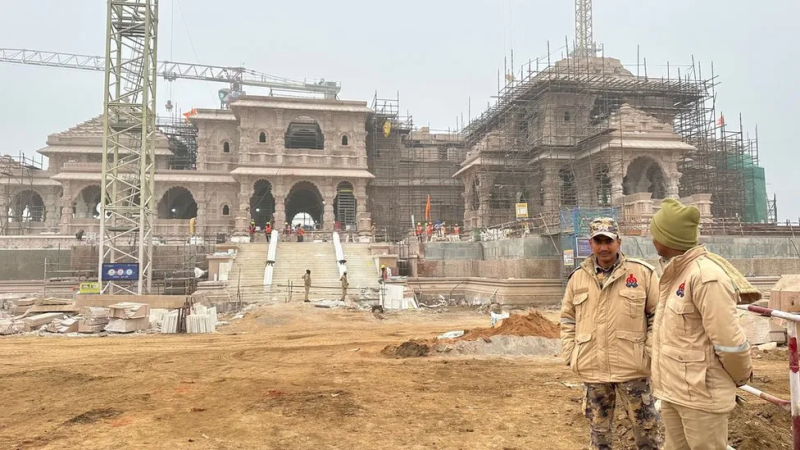- Tarique Calls for United Effort to Build a Safe Bangladesh |
- Tarique leaves for 300 feet area from airport |
- BNP top leaders welcome Tarique Rahman on homecoming |
- Flight carrying Tarique, family lands in Dhaka |
- Red bus with ‘Bangladesh first’ slogan ready at Dhaka airport for Tarique |
Ayodhya: Temple to open at India’s religious fault-line
Santosh Dubey says he has no regrets he helped tear down the mosque

More than 30 years after a 400-year-old mosque was pulled down, a new temple has been built. BBC News
"It was religious work and I was put on this Earth to complete the task," he says. "There is no crime or sin in it."
Mr Dubey, a "kar sevak" (religious worker), was one of hundreds of thousands of Hindu men who demolished the 16th Century Babri Masjid in the Indian holy city of Ayodhya on 6 December 1992.
It was one of independent India's darkest days. The disputed site sits on one of its biggest religious fault-lines - thousands were killed in the violence that broke out.
More than 30 years later, where the mosque once stood a grand temple to Lord Ram, one of Hinduism's most revered deities, is about to be opened by India's Prime Minister Narendra Modi. That's controversial in a country with a secular constitution, but especially so because of the divisive history of the site.
Monday's ceremony is being seen as the informal start of his campaign for re-election this year, wooing India's Hindu majority. Across the country, millions of Hindus are gearing up to celebrate the day like a big festival, while employees of Mr Modi's federal government have been given a half day.
Sitting in his crumbling home, in a narrow alley in the city, paint and plaster peeling off its walls, Mr Dubey says he's proud of what he achieved.
"If we had not done what we did then the temple could never have been built," he says. "Religious sentiments are greater than the constitution. I am extremely happy now. I had taken a pledge that I would not repair my home until Lord Ram got his."
But for Muslims, who make up India's biggest minority, the day will evoke fear and painful memories. Some will send their children out of the city, fearing tensions might be stoked when the streets fill with Hindu devotees from around the country.
"We have been betrayed once, so we feel fear," says Mohammad Shahid. "Many outsiders will come into Ayodhya and it's when outsiders come that there's trouble." – BBC News

